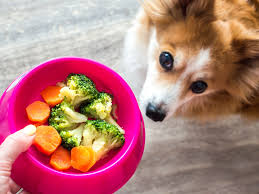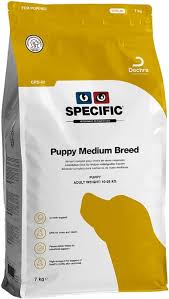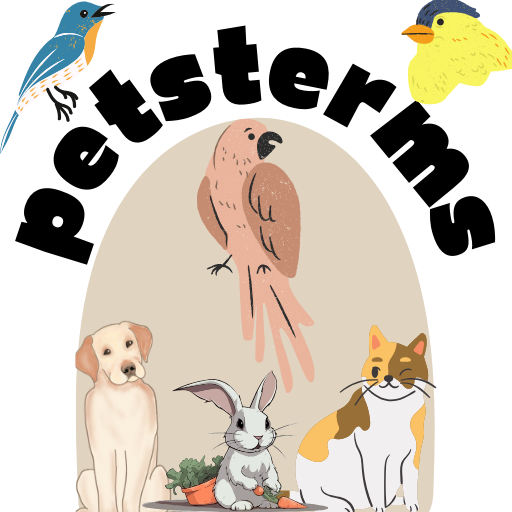Introduction
Feeding your puppy human food is a common question among new dog owners. Welcoming a puppy into your home brings a lot of happiness, but also requires careful attention, particularly when it comes to their diet. Puppy food plays a crucial role in their growth, and many owners wonder if offering them human food is safe. While it might be tempting to share your meals with your furry companion, it’s essential to know which foods are beneficial and which ones could be harmful to their health.

Can dogs eat human food?
The short answer is: it depends. While some human foods are safe for puppies, others can be toxic. The biggest challenge in raising human food puppies is understanding their nutritional needs. Dogs need a balanced diet, rich in proteins, fats, carbohydrates and essential vitamins, which are not always provided by human food.
Understanding your puppy’s nutritional needs
Dogs grow quickly and need special food to support their growth and development. Food designed for puppies ensures that they get a good balance of nutrition.
Commercial puppy food is designed to provide:
High protein for muscle development
Fats are good for energy and brain development
Vitamins and minerals like calcium for strong bones and teeth
Human food is good for puppies

While it’s not a good idea to make human food a staple in your puppy’s diet, there are a few good options for occasional treats:
Cooked meat (chicken, turkey, beef)
Lean meats such as chicken, turkey, and beef (without bones or salt) can be good for puppies. They provide essential protein, essential for muscle growth.
Vegetables (carrots, green beans)
Carrots are low in calories and high in fiber, making them a great treat. Green beans are another low-calorie, vitamin-rich option.
Fruits (apples, blueberries)
Apples (seedless) provide fiber and vitamins, while blueberries are rich in antioxidants. Both can be good for less money.
Dairy products in bulk (plain yogurt, cheese)
Dangerous human foods to avoid
Unfortunately, many human foods are harmful to puppies and can cause serious health problems:
Chocolate and caffeine
Chocolate and caffeine contain substances such as theobromine and caffeine that kill dogs, can cause vomiting, diarrhea, and even death.
Grapes and raisins
These fruits can cause kidney failure in dogs, even in small amounts. Do not let your puppy eat grapes or raisins.
Onion and garlic
Both onions and garlic contain ingredients that can damage a dog’s red blood cells, causing anemia.
Alcohol and caffeinated drinks
Alcohol and caffeinated drinks can seriously damage a dog’s liver and kidneys, causing serious problems and even death.
Why some foods are harmful to humans
Dogs have a different digestive system than humans, and many things that are harmless to us can be dangerous to them. For example, a diet high in fat, sugar, or spices can irritate a puppy’s digestive system and lead to problems such as obesity, pancreatitis, or worse.
Role of part management
Even healthy food intended for humans should be properly administered. Eating too much food can lead to obesity and malnutrition, which can have long-term effects on your puppy’s health. It’s best to schedule puppy meals and treats at regular intervals.
How to introduce human food safely
If you want to give your puppy a good human treat, introduce it slowly. Start with a small portion and watch for any signs of an allergic reaction or digestive problems, such as vomiting or diarrhea.
The need for this specific puppy food

Commercial puppy food is designed to meet all of your puppy’s nutritional needs. Homemade food requires careful planning to ensure balance, but buying high-quality commercial kibble ensures that your puppy gets everything he needs to thrive.
These are common misconceptions about human nutrition
“Dogs are carnivores, they can eat anything“: Although dogs love meat, they need a balanced diet that includes a variety of foods from different sources.
“If it’s good for me, it’s good for my dog“: this idea can be dangerous. Many human foods, such as chocolate or onions, are toxic to dogs, even though they are harmless to humans.
Symptoms of food poisoning in puppies
If your puppy eats harmful food, it may show symptoms such as vomiting, diarrhea, lethargy, or lack of appetite. In severe cases, you may experience tremors, shortness of breath, or seizures. Always consult your vet if your puppy shows any signs of concern.
What to do if your puppy eats foods that are harmful to humans
If your puppy ingests something harmful, act quickly. Call your vet or a pet poison emergency line. It may be necessary to induce vomiting, but this should only be done under professional supervision.
Can dogs get treats at the table?
It is desirable to feed your puppy, but this can lead to bad behavior and lack of nutrition. Instead, choose the best medical treatment for your puppy.

Questions about Raising Human Diet Puppies
Can dogs eat bread?
Yes, regular and small-sized bread is usually good for puppies, but it is not useful in food.
Can I breastfeed a puppy?
Most puppies are lactose intolerant, so it’s best to avoid dairy.
What fruits are good for puppies?
Fruits like apples, bananas, and blueberries are good in moderation.
Is peanut butter good for puppies?
Yes, but make sure it doesn’t contain xylitol, which kills dogs.

Conclusion
Although some human foods are good for puppies, it is best to rely on high-quality puppy food that is specifically designed to meet their nutritional needs. Always introduce new foods slowly and in small amounts, and avoid anything that might cause harm.
Questions
Is cheese good for puppies?
Yes, but only in small amounts, because some puppies may not tolerate lactose.
Can dogs eat rice?
Yes, plain boiled rice is unhealthy and can contribute to digestive problems.
Are eggs good for puppies?
Yes, boiled eggs are a great source of protein.
Should a puppy eat live meat?
It is best to consult a veterinarian before giving raw meat to your puppy because of possible bacteria.
How often can I feed my puppy human food?
Human food should be given only occasionally and in moderation to avoid health problems.

